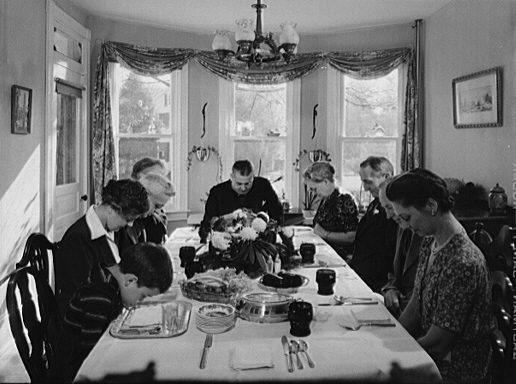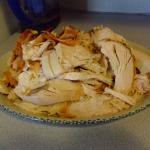
Thanksgiving is the one national holiday that has an explicitly religious meaning. George Washington got the holiday started “as a day of public thanksgiving and prayer, to be observed by acknowledging with grateful hearts the many and signal favours of Almighty God.”
Thankfulness is an acknowledgment of dependence. In that, it is like faith.
The English word “thank” is related to the word for “think.” Part of the observance of Thanksgiving should be thinking about our blessings, which leads naturally to thanking.
Our word “gratitude” comes from the Latin word for thanks, “gratus,” from which is also derived the word “gratia,” meaning grace.
The Greek word used in the New Testament for “to thank” or “to be thankful” consists of the word for “good” and the word for “grace” or “favor.”
St. Paul enjoins us to “give thanks in all circumstances; for this is the will of God in Christ Jesus for you” (1 Thessalonians 5:18). The word is εὐχαριστεῖτε: eucharist!
All of this is to say that thankfulness, like faith, is a response to “grace.” God’s grace in salvation, His “unmerited favor” that He bestows upon us through Christ, but also His other “favors”: family, home, food, country, and on and on.
We teach children to say “please” and “thank you,” social niceties that are signs of the deeper meaning in our social interactions. “Please” is short for “If you please. . . ” We are asking someone to do something for us out of his or her volition, if it pleases the giver, if the giver wants to. We are asking the person for a gift of grace. And then we respond with the confession: “I thank you.”
In reality, of course, when we ask the waitress for “another cup of coffee, please,” she complies not just out of grace because it pleases her. She has to bring the coffee. That is her job. Still, the work of her vocation is a sign of the greater provision of God, who works through her as His mask, giving us our daily bread, which includes our daily coffee. We express our thanks to her and to God, our provider. Thus, before our meals, we “say grace.”
Luther says in his Freedom of the Christian, which discusses the purpose of vocation as being to love and serve our neighbors, that we should be “little Christs” to each other. So in our vocations in the family, workplace, church, and country–all of which come together around the Thanksgiving feast–we embody, in God’s temporal realm, the life of grace and faith.
Our Thanksgiving feast is a “eucharist” that speaks to us also of the ultimate Thanksgiving feast, which is not turkey and dressing but bread and wine. In that eucharist, in the company of other Christians, we receive God’s grace in the body and blood of Christ with faith and thanksgiving.
Photo: “Thanksgiving Grace” (1942) by Marjory Collins, photographer for Farm Security Administration. [Public domain], via Wikimedia Commons














